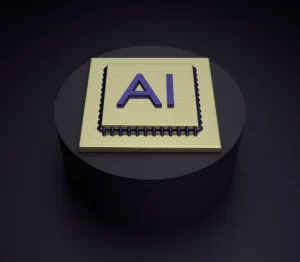The concept of self-driving vehicles has been thought by some people to remain only in the realms of sci-fi movies and books. But the last few years have introduced some robust technological advancement that threatens to make autonomous cars an impending reality.
From the accusation that self-driving cars can run off the road to them being the best thing that can happen to us, many people hold different opinions about this developing technology. Most opinions about this autonomous technology may be biased and influenced based on culture and other influences. But history is replete with examples of many disruptive technologies that have come to be a blessing to the economy.
Even though the American people have an amiable attitude towards technological advancements, there are vast misconceptions about the concept of autonomous driving. To some people, it is insanity to think that they’ll just let their hands off their steering and let the car do the driving for them.
This is readily seen in one research conducted by the American Automobile Association (AAA) that says that just 22% of Americans actually feel at ease riding in a self-driving car. But most of their fears are hinged on the fact that the technology is still under-explored.
This also shows why pedestrian, passenger, and driver’s safety still top the list of fears as self-driving cars. But then, it would interest you to know that according to National Highway Traffic Administration (NHTSA), over 39,000 people in the US died in 2020 from accidents alone, up around 7% from 2019. Human errors caused between 94% and 96% of all auto accidents.
Conversely, Waymo’s car has driven for more than 6.1 million miles in its autonomous mode. Of those millions of miles, only 18 crashes and 29 near-miss collisions have been recorded, and most of those accidents are not very serious ones. Of those 47 crashes and accidents, the self-driving car was implicated in just one of the accidents, while the other 26 were of human error.
Self-driving cars have the capacity to take note of their environment while processing massive data that humans may not be able to process in the same amount of time. With the distilled knowledge from Machine Learning and Data Science, the driver-assist function completely eliminates human errors that can pose serious dangers and cause accidents.
Highly efficient cameras and high-end sensors help capture high-quality 3D images that the car uses to assess the traveler’s motives and respond to varying conditions with split-second accuracy.
Most of the vehicles on the road are currently utilizing many safety-ensuring technologies employed in the complete self-driving cars. Some of these technologies include Blind Spot Monitoring, Lane Keeping Assist, Auto Emergency Braking, and Forward Collision Warning.
More than 70% of people who have these technologies in their cars say that they very contend with the technology and recommend these technologies to their friends. They hold the notion that the general public should cherish the economic disruption and the vast opportunities that this technology would bring instead of being afraid of it.
As a plus to the safety benefits that autonomous cars give to people, these cars function as a platform that enriches the passenger’s and driver’s travel experience. Businesses, restaurants, and parking garages would experience a boom in their market with the looming self-driving cars. Many other industries would also not be left behind these repercussions felt in the auto-world: Commuting, Tourism, and Shopping.
By all indices, the coming of autonomous cars is undoubtedly upon us, with massive encouragement from the known auto-experts and Silicon Valley lords. But it is also important to consider what customers think of it as technology that is fast becoming a reality.
Is autonomous technology something that car buyers will need?
One of the most disturbing things is even the wrong conception, by most people, of what autonomous cars really are. With the increasing media coverage of this topic, we expect all justice to be done on the subject matter. But sadly, many people do not still understand what self-driving cars are.
Following a study carried out by AAA, many Americans are afraid of self-driving cars. And instead of becoming familiar with this indispensable technology, many people are somewhat afraid more.
From a recent study about the public perception of autonomous cars, 78% of Americans confess that they are somewhat scared of autonomous vehicles, contrary to the 63% that said the same thing in the fall of 2017. The AAA states that there is a reason for this increasing fear about autonomous driving by the American people. The reason is not far from the recent deaths in which autonomous cars were implicated.
In a very popular case on March 18, 2018, in Arizona, an Uber autonomous vehicle overrode a woman in her forties and killed her. Even though a judge stated that Uber is not guilty of the incident, an event in the same month in which a Tesla self-driving that was in its autopilot mode killed the driver inside the car heightened the fear of autonomous cars in the American populace. These are reshaping and re-informing the views of most Americans on self-driving vehicles.
Studies show that Americans are more at home with autonomous cars that drive at airports and theme parks at low-speed. A little over 52% of Americans confessed that they are more at home with that scenario. At the same time, about 44% of Americans said that they’d accept an autonomous car that would be used as a carrier for packages and foods.

Below is a break-down of the public opinions of most Americans on Autonomous Car
Q: What do you actually know about autonomous driving?
A: 48% correctly identified an “autonomous vehicle” as one that is controlled entirely by autonomous technology
A: 52% still believe that “autonomous” still includes some human control of the vehicle
A: 52% still believe that “autonomous” still includes some human control of the vehicle
Q: How recently have you come across a story about autonomous cars in the media?
A: 35% have recently seen or heard a story in the media
A: 43% have gone 1 to 3 months since coming across something
A: 22% have not ever read or heard any such media stories
Q: In a fully automated world, 71% of Americans say that they would miss driving
A: 55% of Americans said that they expect autonomous vehicles to reduce, but not eliminate, collisions and injuries greatly
A: 24 % of Americans think that the accident, injury, and fatality rates will stay about the same
Q: Concerning the issue of safety?
A: 8% of Americans says that they’ll feel very safe in an autonomous vehicle
A: 38% of Americans says that they’ll feel somewhat safe
A: 29% of Americans says that they’ll feel somewhat unsafe while
A: 24% of Americans says that they’ll feel very unsafe
Q: Concerning Government Regulations?
A: 66% of Americans think that the US Government must be involved in regulating autonomous vehicles
A: 34% of Americans leave it up to the car makers and also think that the Government should stay out of it
Q: Concerning when they think that most cars in the US would be autonomous?
A: 17% says that most cars in the US would be autonomous in 5 years-times.
A: 29% says that most cars in the US would be autonomous in 10 years-times.
A: 30% says that most cars in the US would be autonomous in 20 years-times.
A: 24% says that most cars in the US would NEVER be autonomous
Q: Concerning the impact of autonomous cars on employment in America?
A: 24% think that an autonomous world would positively or negatively impact their jobs and careers.
Conclusion
Indeed, it is expected that they should be dissenting opinions from the general public about what they feel about autonomous cars. Most of these opinions are reinforced with the recent occurrences in the autonomous world.
Even though self-driving technology is increasing rapidly, it is evident from the survey carried out thus far that many Americans are still not prepared for it. Some indications seem to state that some people despised technology altogether. It also seems that many proponents of this emerging technology may overlook some potential dangers that this technology may bring us. Although some people are forcing paradigms to shift, the answers to most survey questions seem to state that many Americans are still at home with the status quo.
Thank you for reading!




